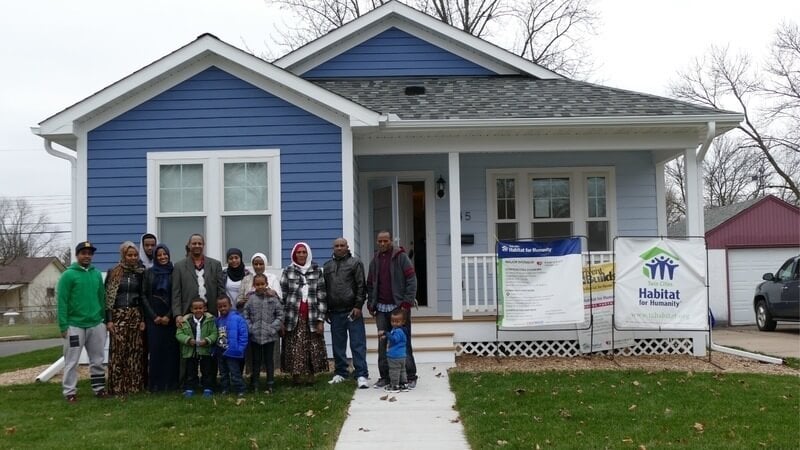Budget Friendly Homeownership Options for First-Time Homebuyers
As the housing market remains to develop, newbie property buyers deal with unique difficulties in safeguarding inexpensive homeownership alternatives. Numerous resources, including entitlement program programs, low-down-payment home loans, and targeted gives, have arised to minimize monetary stress. These campaigns not just facilitate homeownership yet also foster community stability and financial growth. Nevertheless, navigating these options can be complicated, and understanding which paths are most useful requires careful factor to consider. What strategies can potential home owners use to optimize their opportunities in this landscape?
Federal Government Aid Programs
Government aid programs play an essential role in making homeownership obtainable for several individuals and family members. These programs aim to relieve the financial burden related to buying a home, particularly for novice buyers. By supplying economic aid, grants, and tax incentives, federal government initiatives aid bridge the space between climbing real estate prices and the buying power of prospective house owners.
Numerous programs are available at the government, state, and neighborhood levels. For circumstances, the Federal Real Estate Administration (FHA) provides insurance on finances, allowing loan providers to provide more favorable terms, such as lower deposits and minimized rate of interest. Additionally, state and regional governments frequently have their own campaigns, which might consist of down repayment help programs, property buyer education courses, and beneficial home mortgage terms.
These programs are designed to deal with the special challenges faced by low- to moderate-income families, consisting of restricted savings and credit scores background. By promoting a setting where homeownership is a lot more available, federal government aid programs not just support individual aspirations yet additionally add to area stability and economic growth. Comprehending and utilizing these sources can substantially boost the potential customers of successful homeownership.
Low-Down-Payment Mortgages
For lots of aspiring home owners, low-down-payment home loans present a viable path to homeownership, particularly in today's challenging housing market. These home mortgage alternatives commonly require deposits varying from 3% to 5%, making it less complicated for newbie customers to enter the marketplace without the problem of conserving for a substantial down settlement.
Numerous lenders provide low-down-payment programs, consisting of standard fundings backed by Fannie Mae and Freddie Mac, as well as government-backed alternatives like FHA loans. These home mortgages are created to fit people with limited savings while still offering affordable rate of interest. Notably, they allow purchasers to maintain even more cash money for other important expenses, such as moving expenses, home examinations, and prospective renovations.
Nonetheless, prospective house owners must be conscious of the compromises related to low-down-payment home loans. A smaller sized deposit may cause higher regular monthly payments and the requirement of exclusive home mortgage insurance (PMI), which protects loan providers in situation of default. It is vital for new customers to carry out thorough study and seek advice from with home mortgage professionals, guaranteeing they pick a low-down-payment option that lines up with their long-lasting monetary objectives.
First-Time Property Buyer Grants
Several newbie homebuyers locate that gives can considerably alleviate the economic problem of acquiring a home, complementing low-down-payment mortgage choices. These gives, usually given by state and charitable companies or neighborhood federal governments, supply monetary help that does not call for settlement, making them an attractive alternative for those going into the real estate market.
Qualification for first-time buyer grants typically depends on revenue, credit reliability, and the purchase price of the home. Many programs are designed to aid reduced- to moderate-income households, guaranteeing that assistance gets to those that require it most. The application procedure commonly includes documents of financial status, buyer education courses, and sometimes also a commitment to remain in the home for a particular period.
The quantity helpful varies extensively, with some gives offering a number of thousand dollars to help cover closing costs or deposits. Researching available gives in your location is crucial, as programs often transform and might have details needs. By leveraging these funds, first-time homebuyers can make homeownership more accessible, ultimately attaining their desire of owning a home while minimizing the first economic stress.
Cutting-edge Area Initiatives
Cutting-edge area efforts are playing an essential role in broadening budget-friendly homeownership alternatives for residents. These campaigns commonly entail collaborative efforts in between city governments, charitable companies, and private market stakeholders to create sustainable housing services customized to community needs.
One significant technique is the facility of community land trusts (CLTs), which enable locals to buy homes while the land stays had by the trust fund. This design aids preserve affordability in time and prevents speculative cost increases. Additionally, CLTs typically offer academic sources and assistance services to equip novice buyers.
Another efficient effort is the growth of mixed-income housing projects, which mix inexpensive units with market-rate homes. This approach promotes comprehensive neighborhoods and lowers the stigma often connected with low-income housing. Additionally, local federal governments are progressively sustaining zoning reforms to promote the building and construction of accessory dwelling systems (ADUs), which can give added rental income for home owners while raising housing availability.

Tips for Budgeting and Saving

Next, establish a dedicated interest-bearing account especially for your future home purchase. Objective to save a percentage of your earnings regularly, preferably 20% or more, to construct a considerable deposit. Utilize automation devices, such as straight deposit or automatic transfers, to make conserving easier and a lot more constant.
In addition, consider adopting the 50/30/20 policy: allot 50% of your revenue to requirements, 30% to wants, and 20% to financial savings and financial obligation payment - Affordable Homeownership. This technique promotes well balanced monetary go to website health

Verdict
In summary, budget-friendly homeownership choices for new homebuyers incorporate different resources such as federal government support programs, low-down-payment home mortgages, and gives. By leveraging these economic devices, people can navigate the intricacies of homeownership, ultimately adding to a much more equitable housing landscape.
As the real estate market continues to advance, new property buyers face unique difficulties in protecting cost effective homeownership options. By cultivating an environment where homeownership is a lot more accessible, government help programs not just support individual desires yet likewise contribute to area stability and economic development. By leveraging these economic resources, newbie property buyers can make homeownership more easily accessible, eventually achieving their these details dream of having a home while alleviating the preliminary monetary pressure.
In recap, budget-friendly homeownership alternatives for new homebuyers encompass various resources such as government help programs, low-down-payment mortgages, and grants. By leveraging these financial tools, individuals can browse the intricacies of homeownership, ultimately contributing to an extra equitable housing landscape.